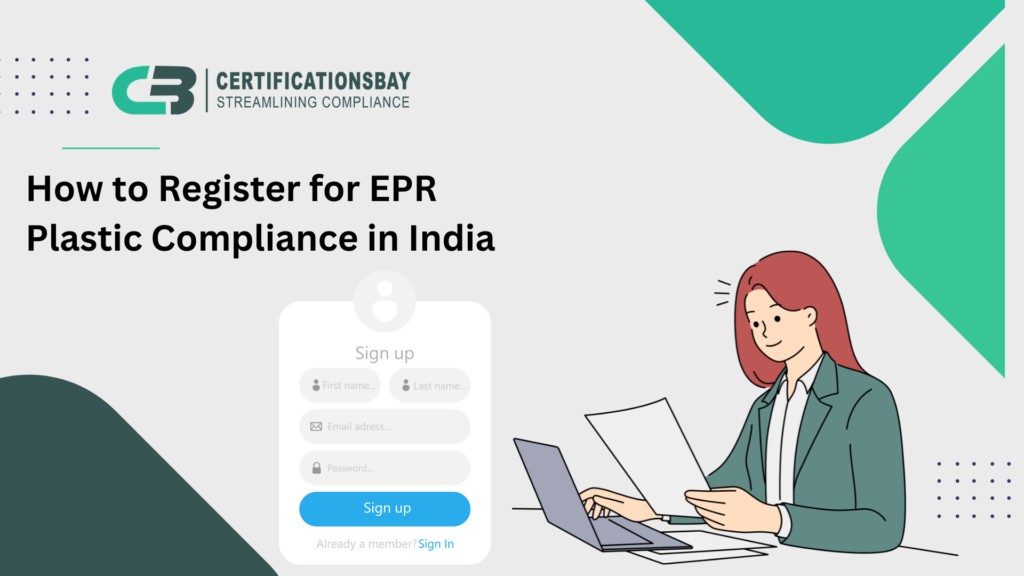
Extended Producer Responsibility (EPR) for plastic waste management is a vital compliance requirement for producers, importers, and brand owners in India. As the country grapples with the environmental impact of plastic waste, the EPR framework mandates that those who introduce plastic products into the market are responsible for their end-of-life management. This comprehensive guide will walk you through the step-by-step process of registering for EPR plastic compliance in India, ensuring your business meets all regulatory requirements.
Why EPR Plastic Compliance is Important in India
India generates a significant amount of plastic waste annually, much of which is not adequately managed. EPR compliance ensures that businesses take responsibility for the plastic they produce or import, thereby reducing environmental harm. Non-compliance can result in hefty fines, legal action, and even suspension of business operations. Registering for EPR plastic compliance not only helps in fulfilling legal obligations but also enhances your company’s reputation as a responsible entity.
Step 1: Understand the EPR Plastic Compliance Requirements
Key Points to Note:
- Who Needs to Comply? Producers, importers, brand owners, and plastic waste processors.
- Categories of Plastic Waste: Different categories include recyclable, non-recyclable, and multi-layered plastics.
- EPR Authorization: Businesses must obtain EPR authorization from the Central Pollution Control Board (CPCB) or the respective State Pollution Control Board (SPCB).
Step 2: Gather Required Documents
Before starting the registration process, gather all the necessary documents. These may include:
- Business Incorporation Certificate: Proof of your company’s legal status.
- GST Certificate: Your business’s Goods and Services Tax identification number.
- PAN Card: Permanent Account Number for tax purposes.
- Authorized Signatory Document: Proof of the person authorized to sign documents on behalf of the company.
- Details of Plastic Waste Generation: Information on the type and quantity of plastic waste your business generates.
Step 3: Create a Plastic Waste Management Plan
A crucial part of the EPR registration process is developing a Plastic Waste Management Plan. This plan should detail how your company will manage the plastic waste it generates, including:
- Collection Mechanism: How you will collect plastic waste from consumers.
- Transportation: The process of transporting collected waste to recycling facilities.
- Recycling and Disposal: Methods of recycling or disposing of plastic waste in an environmentally friendly manner.
- Financial Plan: Budget allocation for the management of plastic waste.
Step 4: Register on the Central Pollution Control Board (CPCB) Portal
With your documents and waste management plan ready, the next step is to register on the CPCB’s online portal. Here’s how:
- Visit the CPCB EPR Portal: Navigate to the EPR plastic registration section.
- Create an Account: Sign up with your business details.
- Fill in the Registration Form: Provide all necessary information, including your business details, waste management plan, and supporting documents.
- Submit the Application: After completing the form, review it for accuracy and submit it online.
- Pay the Registration Fee: There is usually a fee associated with EPR registration, which can be paid online.
Step 5: Await Approval and Authorization
Once your application is submitted, it will be reviewed by the CPCB or the respective SPCB. The review process may take several weeks, during which the authorities may ask for additional information or clarifications. Upon successful review, your business will receive EPR authorization.
Step 6: Implement the Plastic Waste Management Plan
After receiving EPR authorization, it’s time to implement your Plastic Waste Management Plan. This involves:
- Setting Up Collection Systems: Establish points of collection for plastic waste, either through your own network or in collaboration with third-party agencies.
- Monitoring and Reporting: Regularly monitor the waste management process and report your activities to the CPCB or SPCB as required.
- Continuous Compliance: Ensure ongoing compliance with EPR requirements, including updating your waste management plan and maintaining records of all activities.
Step 7: Renew Your EPR Authorization
EPR authorization is typically valid for a specified period, after which it shall be renewed. Ensure you track the expiration date of your authorization and initiate the renewal process in advance to avoid any lapses in compliance.
Common Challenges in EPR Plastic Compliance Registration
Businesses often face challenges during the EPR registration process, including:
- Complex Documentation: Ensuring all required documents are in order can be time-consuming.
- Understanding Regulations: Keeping up with the evolving regulations can be difficult.
- Implementation Difficulties: Setting up an effective waste management system requires significant resources and planning.
To overcome these challenges, consider consulting with experts who specialize in EPR compliance or hiring a service provider to assist with the registration and implementation process.
Conclusion
Registering for EPR plastic compliance in India is a critical step for businesses involved in producing, importing, or selling plastic products. By following this step-by-step guide, you can navigate the registration process efficiently and ensure that your business meets all regulatory requirements. Compliance not only helps in avoiding penalties but also contributes to sustainable waste management practices, aligning your business with global environmental standards.
